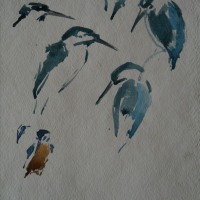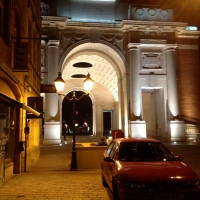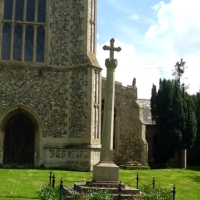Too little inspiration can be as bad as too much. I am often asked what to do when the ‘thing’ you have to interpret is too hard, too boring, or both.
I have written elsewhere on this blog, like here, and here, about the possible pitfalls of being too excited about the stuff you have to share. This is about the other side of that coin, the dangers of not being excited enough.
In practice, we are often not telling our own stories, or sharing our own passions. Thinking about museum ethnography in preparation for the University of Leicester session (see here) focused my mind on the awesome responsibility of telling other people’s stories. The challenge of interpreting objects from indigenous communities in far off counties sets that responsibility in sharp relief. But whatever discipline we work in, we are likely to find ourselves needing to relate other people’s stories justly and with integrity. There is extra work in ‘gaining mastery’, as a storyteller or interpreteller must, of material that is not your own.
Here are 5 things that might help:
1. Find a mediator or an advocate to help you Fortunately for us all, enthusiasm is contagious and knowledge is transmissible. So if you can’t get excited by the workings of a windmill, or the UK tax system or the production of wallpaper (no kidding, I’ve done them all) find someone who can. Absorb it from them. Not from books, from them.
Sometimes we need people to explain stuff that is new to us and therefore hard to understand. Again , finding someone who can help you make the connection can be vital. I am grateful to Qasim Riza Shaheen for his insights on the importance of finding an appropriate mediator in cross-cultural work. I believe this applies more widely too.
2. Listen Having found the people who can help you, use them properly. Listen to them carefully and imaginatively. Absorb what they know. Do not argue – even if, maybe especially if, they have a complaint about ‘your’ people. I learned that lesson powerfully as an English interpretive mentor working in Ireland. Be quiet, keep your eye on their perspective. It is, after all their perspective you want. Don’t be distracted, at this stage by questions of ‘balance’. The ‘other point of view’, if it is needed (see 4 below), is someone else’s story and needs a different teller.
My life has been enriched by close listening to people telling me their stories: islanders from Lindisfarne, lifeboatmen from Blackpool and Cromer, Gujarati women from Coventry and many others.
3. Recognise, and use, the limits of your understanding – Ask the dumb questions, be bold and undaunted by the magnitude of your own ignorance. This may be your only chance to ask these things of someone who can give you authoritative answers. Do it for yourself, and do it too for your visitors who know as little as you do. Do not fake understanding and do not be embarrassed that you do not know it all. Even if you are working within an organisation where it feels that everyone except you knows the answers. I believe ‘being ignorant on behalf of the great British public’ is one of the great attributes I bring to my work.
4. Consider multiple voices – No one’s story is the only story or the whole story. For all sorts of reasons your organisation or institution may need or want to offer a range of perspectives. Polyvocality (many voicing) can be an interesting and dynamic technique – and needs, at some point, a blog of its own!
5. Change the language – Maybe it is hard for you to engage with this ‘thing’ because it has become cliched or laden in bureaucratic language. Maybe your organisation always talks about it in the same way in the same , somewhat worn, words. Step outside that – just to prove you can. Change the language, change the tone. Get creative – rap it, riddle it, rhyme it; just break that set pattern. There is always more than one way to tell as story. Finding new ones may take you a little more time and imagination.
.




